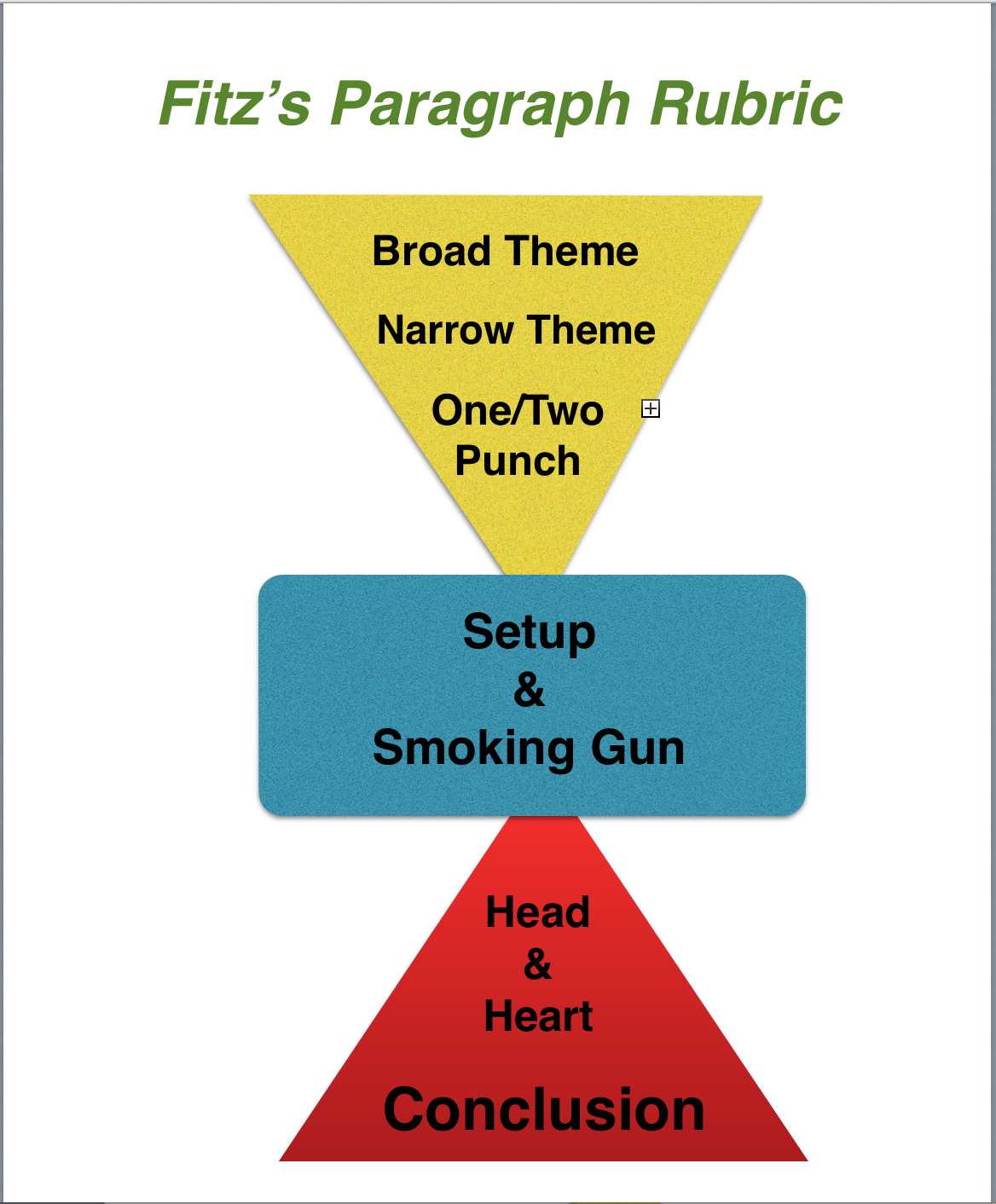The only way out is through…
Damn! Another long post…
For better and worse–and through thick and thin–I keep piling on rubric after rubric to help guide the content, flow, and direction of my students’ writing pieces. The greater irony is that I never set out to create or use rubrics with them. I was always (and still am) a great proponent of just writing until your writing skills reach the omega point–that place where you write well just because you don’t know how else to write, except “well.”
I don’t believe this because I think it; I believe it because I know it and have seen it hundreds of times over: if you write a prodigious amount and you try to use good and accepted writing skills, you will become a better writer. By “prodigious” I mean something along the lines of 1500-2000 words a week, week in and week out. By good and accepted writing skills I mean that you practice and imitate and hone those skills that have worked for countless generations of writers before you.
And for those of you with a particular slant of genius, you can be that writer who creates a new way of approaching writing–a way that simply works for whatever audience you envision!
I am not so vain and ignorant to think that I have found a solution for weak writers to become little Billy Shakespeare’s, but I am wise enough to see when something just works. I saw it last weekend when I trawled through the myriad depths of your portfolios and joyfully read post after post that were engaging, enlightening, and edifying. Some of the posts had the raw quality of uncooked food that would benefit from a bit more cooking–more proofreading, organizing, and revising for clarity, conciseness, and completeness. Some more of the posts were utterly perfect in vision, crafting and follow through.
My dream and hope and intent is that you feel and see what I feel and see. I started The Crafted Word out of a belief that words are the clay of our soul and that crafting, shaping, and forming that clay into the shape of your unique and enduring mind and soul and being in an intentional and disciplined way will transform you into craftsmen of words and, ultimately, into fully independent artists that seek and desire the perfection that only true artists can attain–and I want to give you the workshop and studio that helps you reach that perfection.
Which to me is why you are here reading this right now, and today is as good a day as any to start or to continue, for one is as important as the other.
I started making rubrics a few years ago as a way to help writers get started. I spent a long time looking, reading–and listening–to how conversations and writing pieces were structured, and I tried to see what patterns those pieces followed and what irrefutable and universal logic was inherent in what I read and heard; and then I tried, and am still trying, to recreate these patterns as a guide to how we, as writers, consciously and unconsciously follow those patterns.
Are there other ways to do this?
Of course there are other ways. The only true judgment of a writer is in the willingness and desire of a reader or readers to read what you have written–and to want to read more of your writing again and again, but to flail blindly in a thicket of words is no way to reach your destination; while, to boldly carve a new route the same morass is noble and courageous and what every true writer sometimes has to do. Or wants to do! The rubrics are just a map that show “a” way through and out–and sometimes around–a writing block.
All you really need to be a great writer is a realization that once your words are uttered or printed they are no longer yours. They are an intentional gift to an audience.
Give your audience what they need and want and will cherish. Give yourself the time to make that sea of words. It really does work.
And that becomes your reward and your inspiration to reach that higher level.


